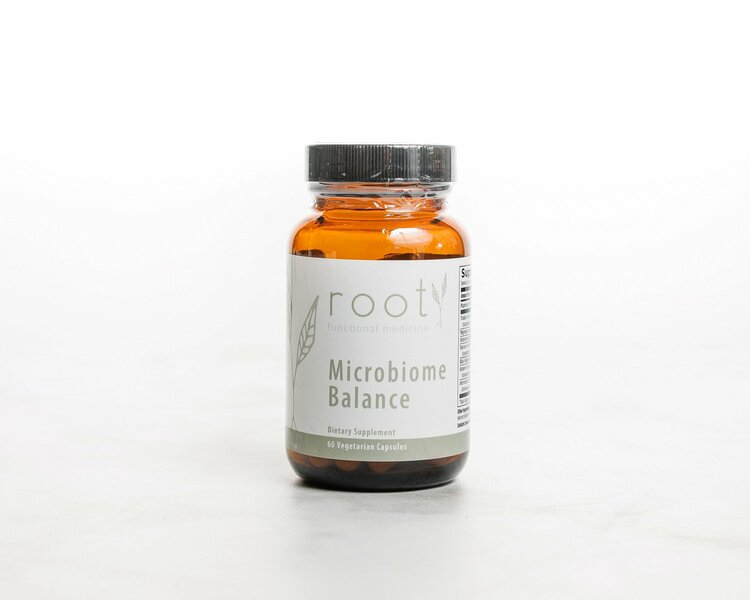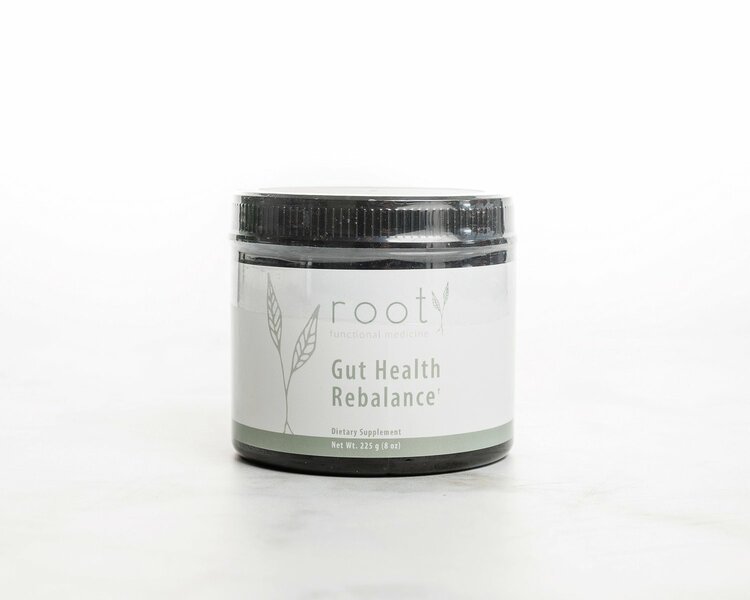
Best Herbs for Gut Health
Your gut plays a pivotal role in digestion, nutrient absorption, and immune function. However, factors like stress, poor diet, and medications can disrupt the delicate balance of the gut microbiome, leading to various digestive issues.
Thankfully, nature provides us with an array of powerful herbs that can support gut health and treat digestive issues. In this article, we will explain the best herbs for gut health.
Best Herbs for Gut Health
An herb is any plant with leaves, seeds, or flowers. You may be most familiar with herbs in the cooking sense; however, eastern medicine has successfully harnessed the power of herbs to treat a variety of ailments for thousands of years. Here are a few of the best herbs for gut health that we frequently recommend in our practice.
Berberine
Berberine is a naturally occurring compound with medicinal properties found in the roots and bark of certain plants. Berberine has been found to benefit a variety of chronic diseases like type 2 diabetes, Alzheimer’s, heart disease, and more (1). However, we also use this herb to address digestive issues.
Berberine exhibits antimicrobial properties, targeting harmful gut bacteria and promoting the growth of beneficial ones. This makes it an effective tool in restoring a balanced gut microbiome. Berberine's anti-inflammatory properties are well-documented and can help reduce inflammation in the gut and protect the gut lining, potentially providing relief from conditions like ulcerative colitis and Crohn’s disease (2).
Slippery Elm Extract
The inner bark of the slippery elm tree has been used by Native American tribes as a natural remedy for various health issues, including digestive problems.
Slippery elm extract is known for its soothing and protective properties, coating the stomach and intestinal lining, providing relief from irritation and inflammation. As a result, this herb may help ease heartburn and acid reflux symptoms by forming a protective barrier against stomach acid. Slippery elm may also aid in alleviating constipation and promoting regular bowel movements due to its mild laxative effect.
Peppermint
As one of the most popular herbs for gut health, peppermint is widely used, even in conventional medicine. For instance, peppermint's natural antispasmodic properties can help ease bloating, cramps, and gas by relaxing the muscles in the digestive tract (3). As a result, peppermint can often help individuals with conditions like irritable bowel syndrome. Peppermint's soothing properties can also be beneficial in relieving nausea, especially when used as an aromatherapy (4).
With its refreshing and minty flavor, you can harness the power of peppermint in your cooking. For example, steep fresh peppermint leaves in hot water to create a soothing herbal tea, use chopped peppermint leaves in salads or cooked grains, or incorporate it into homemade sauces like chimichurri and pesto.
Oregano
Known for its culinary uses, oregano is a powerful herb that offers numerous benefits for your GI tract. First of all, oregano contains compounds with potent antimicrobial properties, which can help combat harmful bacteria and parasites in the gut. The high antioxidant content in oregano also works to neutralize harmful free radicals that can damage cells and disrupt the gut barrier. By reducing oxidative stress, oregano may protect the gut from cellular damage.
Oregano is a versatile herb to use in cooking with a robust and earthy flavor. Mix oregano with other herbs and spices to create a flavorful spice rub for meats like chicken, beef, and pork. This herb also works particularly well with bean soups, lentil stews, and roasted vegetables.
Aloe Vera
Aloe vera is a plant that has been used for its potential health benefits for centuries, including its positive effects on gut health. First of all, aloe vera contains prebiotic fiber, which acts as fuel for healthy gut bacteria. Some studies also suggest that aloe vera may help support the integrity of the gut barrier, preventing harmful substances from entering the bloodstream (5). Finally, aloe vera may have a mild laxative effect which can help promote regular bowel movements.
Aloe vera juice is a mineral-rich beverage that can be added to smoothies and fresh juices to provide a refreshing and slightly tangy flavor. It pairs well with citrus fruits, berries, and other tropical fruits. However, it's important to choose aloe vera juice that is specifically labeled as suitable for consumption, as some varieties are intended for external use only.
Treating Gut Issues at the Root Cause
Let's review two different Root supplements backed by scientific research that target the most common root causes of digestive symptoms and contain various herbs for gut health.
Microbiome Balance
First of all, we often recommend Microbiome Balance as the first step to a gut healing protocol because it contains a blend of herbs, like berberine, to gently rebalance the gut in cases of dysbiosis and/or bacterial overgrowth.
Gut Health Rebalance
Secondly, Gut Health Rebalance is a powder containing the perfect synergy of ingredients to heal the gut lining, like slippery elm and aloe vera extract. We often recommend this powder after or in conjunction with Microbiome Balance for a gut healing protocol.
Key Takeaways
Many herbs contain powerful properties known to rebalance the gut microbiome, heal the intestinal lining, and fight off inflammation. Berberine, slippery elm extract, peppermint, oregano, and aloe vera are a few of the herbs we often recommend for gut health. However, as with any supplement or herbal remedy, it’s important to consult with a healthcare professional before incorporating into your regimen, especially if you are pregnant, nursing, or taking medications.
If you’d like to learn more about how to find and treat the root cause of your digestive symptoms, check out our functional medicine membership program.

Get to the Root at Home
Curious about where you should start your functional medicine journey?
Take our Get to the Root Quiz so you can start working towards reversing disease and optimizing your health at the Root cause.
Take the Get to the Root Quiz

